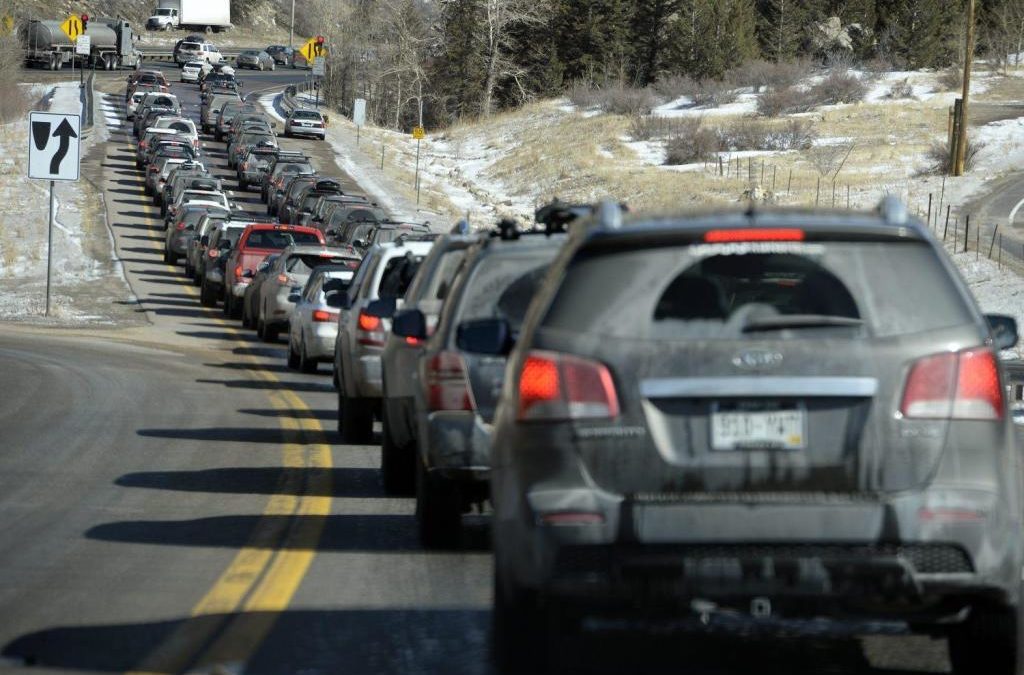After years of voters refusing to raise taxes to fund transportation needs, it’s time for lawmakers to fix Colorado’s roads themselves.
Colorado voters since 1880 have rejected 48 of 72 proposals to adjust taxes. That may not seem like an untenable failure rate, however, some of the 24 measures approved were tax cuts, like the 2020 reduction in income tax, or limited increases of sin taxes (marijuana, nicotine, gambling) that fund non-essential programs.
This tax aversion has created a low-tax environment in Colorado, which is great, but low taxes also mean underfunded critical government functions, particularly road, bridge, and tunnel maintenance.
Funding for infrastructure is at a critical level. Interstates and highways are deteriorating faster than the Colorado Department of Transportation can perform basic repairs. Needed expansions, including the Interstate 70 corridor to the mountains, may never happen. Poor road conditions create dangerous hazards that cause crashes. Cars and trucks get worn out faster and need new tires sooner. CDOT estimates that time loss and wasted fuel from traffic congestion in Colorado is worth $3.8 billion a year. Idling cars also cause unnecessary pollution. And tourists may look for alternatives in the West where access to the mountains doesn’t require an hour of slow and go traffic.
While neighboring states have increased their gas taxes to invest dollars in their critical infrastructure, Colorado has scraped together pennies using complicated accounting tricks. These tricks did not raise needed revenue but only avoided having to return already collected tax dollars to folks under TABOR’s arbitrary revenue limits.
Enter Gov. Jared Polis who is not willing to sit and watch this state fall apart.
The time is right to circumvent TABOR — via completely legal and constitutional means — to raise the money the state needs.
Polis is backing Senate Bill 260, which was crafted by Sens. Faith Winter and Stephen Fenberg and Reps. Matt Gray and Alec Garnett. It will generate $3.8 billion in revenue from an increase in the gas tax and other new taxes on the delivery of goods and services, ride-sharing and rental cars. These taxes are technically “fees” because they are generated on users of a specific service or good and spent directly to provide that good or service (in this case drivers and the fee funds the roads they use). It’s a legal interpretation long upheld by the Colorado Supreme Court.
Additionally, over the next 10 years, the state will spend $1.5 billion in stimulus money and a small amount from the state’s general fund (money that primarily comes from state income taxes) on roads.
Combined, the fees, federal and state dollars will pay for CDOT’s 10-year plan, which is full of critical projects across the state, everything from $100 million for work at I-70’s Floyd Hill to $6 million for the small stretch of State Highway 12 between Trinidad and Valdez. The plan also includes mass transit projects like our mountain bus systems.
The bill will infuse money and work to local communities and repaved roads will reduce the cost of wear and tear on vehicles for drivers, consumers and business owners.
Senate Bill 260 is in the best interest of taxpayers who will probably not even notice the price increase at the pump but will certainly feel the improvement under their tires.
To send a letter to the editor about this article, submit online or check out our guidelines for how to submit by email or mail.
This content was originally published here.

